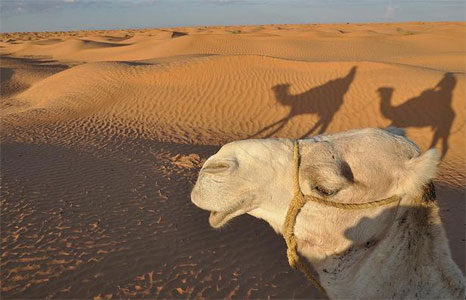
On one side there’s the association that claims to have a set of solutions to the parties concerned that do not follow. For the management service head of the animal production under the Regional Commission for Agricultural Development (CRDA) of Tozeur, it is the old farming methods that have hindered the development of the sector and its profitability.
Grazing areas in the governorate of Tozeur are scarce because of the drought added to a poor vegetation cover. Farmers sell more particularly to their flocks in Libya.
If the veterinary and agricultural services have increased their efforts to motivate farmers and subsidize the supply of livestock including barley. It turns out that costs are still too high. Lack of pasture and watering not to gather the flock in one place, clearly makes it more difficult to control operations and health interventions. Lack of medicines, has spawned a proliferation of diseases including smallpox.
Incidentally, the director of the Animal Production Service has expressed a certain neglect of farmers, who have not done the cattle marking operation while it remains an effective method to determine the number camels and ensure good control.
The breeding of camels, whose numbers amounted to 2,500 heads, is under threat because of the waiver of youth and farmers to invest in this sector, considering that the subsidy granted by the state is insufficient. A commission will be established soon nationwide and will be responsible for the upward revision of the agricultural benefits to the livestock camel industry to promote the sector and safeguarde it.
Tap / Press / 1001-Tunisia
{Mainvote}

 َAbonnez-vous
َAbonnez-vous

